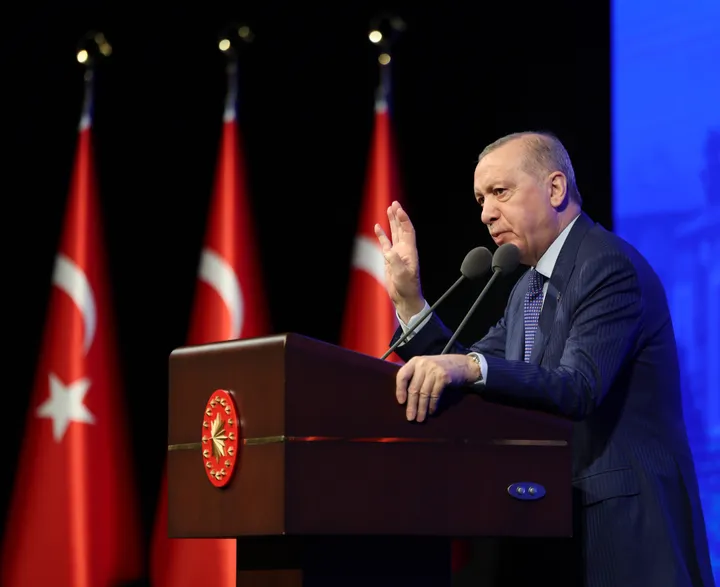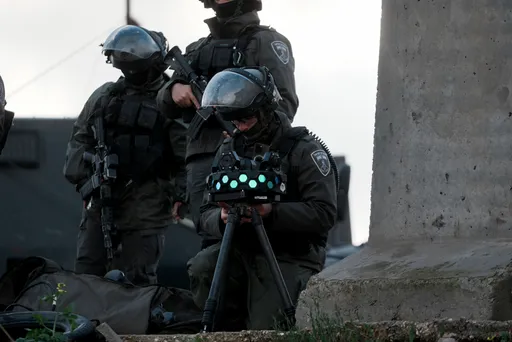Popularly known as a high-end tourist destination, Mauritius has increasingly found itself wrapped up in the waves of the geostrategic Indian Ocean theatre.
A report published yesterday claimed that India is building a naval base on the remote Mauritian island of North Agalega, according to satellite imagery, financial data and on-the-ground evidence collected by Al Jazeera’s Investigative Unit.
“The Indian Ocean is undoubtedly a region of great strategic importance,” Aravind Joshi, a maritime security researcher at Global Risk Intelligence, told TRT World.
“The construction of a naval facility highlights how Mauritius is increasingly becoming an integral part of India’s Ocean Diplomacy goals.”
Located in the southwest Indian Ocean, it is made up of four island groups: Mauritius, Rodrigues, Saint Brandon, and the Agalega islands.
Some 1,122 km north of the main Mauritius island with a population of 300 people, Agalega has become a hub of construction activity. Satellite imagery shows major airfield and port developments reportedly worth $87 million underway.
Samuel Bashfield, a researcher at the National Security College at the Australian National University, said it’s a prime area for India to use as a launch pad for operations.
“I think it’s an absolutely perfect spot for a military base,” Bashfield told Al Jazeera.
Bilateral relations between India and Mauritius have been historically warm, and are now punctuated by high-level diplomatic visits, several lines of credit for infrastructural projects, as well as joint patrol and surveillance operations.
An editorial in the Mauritius Times earlier this year described how Indian investment was associated with how the “evolving geopolitical landscape of the Indian Ocean (IO) has created new challenges – and opportunities – for countries in and bordering the IO.”
That the Indian Ocean is becoming a pivotal zone of strategic competition explains New Delhi’s security and development cooperation with smaller Indian Ocean island states like Mauritius, notes Joshi.
India had first sought access to the Agalega island in 2015 to develop it as an air and naval staging point for maritime surveillance.
The two nations signed a memorandum of understanding (MoU) in 2015, among which one of the five agreements was for “setting up and upgradation of infrastructure for improving sea and air connectivity,” while “ameliorating the condition of the inhabitants” on the island.
A 2016-17 budget document showed the Indian government allocated $4.4 million for experts from the Ministry of Defence to conduct a survey of Agalega to strengthen India’s maritime surveillance capacity.
Media reports about a military base on the island first surfaced in 2018, however both India and Mauritius have denied the construction project is for military purposes.
During a parliamentary session earlier this May, Mauritian Prime Minister Pravind Jugnauth dismissed any idea of military construction taking place, saying: “Let me reiterate, most emphatically and in unequivocal terms, that there is no agreement between Mauritius and India to set up a military base in Agalega”.
Multipolarity in the Indian Ocean
To Joshi, there is a straightforward motivation behind India’s move to militarise the island: China.
“Much of the momentum underlining India’s outreach to its neighbourhood has been driven by China’s growing involvement in the region through ambitious infrastructure projects,” he says.
With Beijing having setup their inaugural overseas military base in Djibouti in 2017, fortifying its own maritime operational points in the region has invariably become part of New Delhi’s strategic calculus.
One arm of counter-influence operations is embodied in the so-called ‘Quad’ – comprising Australia, India, Japan and the US – to arrest the growing Chinese footprint in the Indo-Pacific.
It is against this backdrop of growing multipolarity that India's outreach to its Indian Ocean partners is taking place, enlisting the likes of Mauritius and the Maldives as being integral to pursuing its maritime security agenda.
This was most recently highlighted during a four-day visit to both countries between February 20-23, with Indian foreign minister Dr S Jaishankar tweeting that “India will always be a reliable security partner for Maldives,” while echoing a similar sentiment on India’s ties with Mauritius.
Joshi says that New Delhi should avoid viewing such relationships from a security-centric lens, adding that it will need to consider the interests and concerns of island states like Mauritius, lest they become geostrategic chess pieces in the arena of power politics.
“As Mauritius surveys its future foreign policy and economic options amid heightening regional geopolitics, it will be useful for India to pay attention to aspects of the nation’s concerns and its identity as a small island developing state," he argues.
"That will inform how it [Mauritius] pursues a strategy of balancing different powers to maintain its sovereignty and security.”























